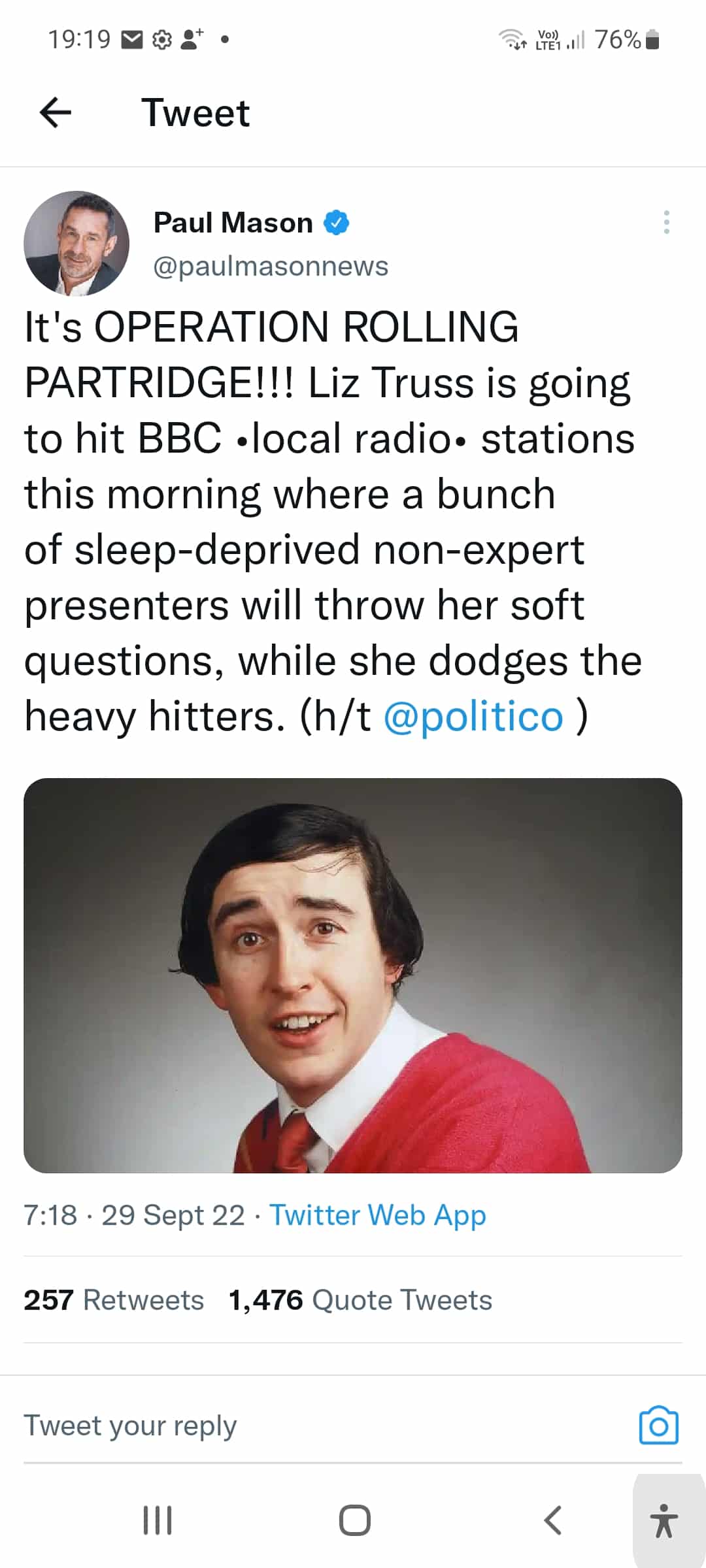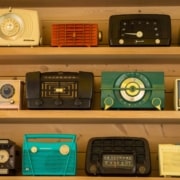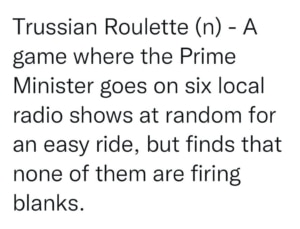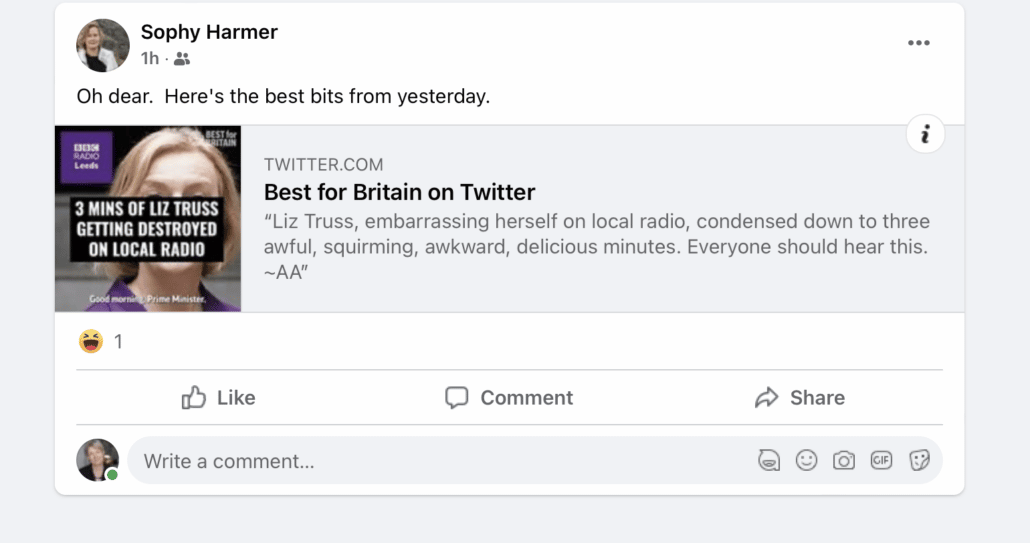Why There’s No Such Thing as ‘Only Local’ Media
Before Liz Truss’ now famous series of local radio interviews last Thursday, many media commentators were cynical.
Cynical not just about what the Prime Minister was going to say, but also how effective presenters from smaller stations would be at getting to the heart of the issues and give her the grilling a politician of her stature deserved.
Journalist Paul Mason summed-up the views of many in a tweet on the morning of the broadcasts:

And in case anyone was in any doubt about what he meant, Mason accompanied the tweet with a picture of Steve Coogan’s character Alan Partridge, the hapless and cringeworthy presenter from Radio Norwich (a fictional station, although supposedly operating from the same city where the BBC’s Radio Norfolk is based – one of the outlets asking questions of the Prime Minister that day).
But how wrong he was. The questions were far from ‘soft’. Radio Leeds, Norfolk, Kent, Lancashire, Nottingham, Tees, Bristol and Stoke and their presenters Rima Ahmed, Chris Goreham, Anna Cookson, Graham Liver, Sarah Julian, Amy Oakden, James Hanson and John Acres did a superb job of making pertinent, difficult and tricky enquiries, which often led to some embarrassingly long pauses from their interviewee before she replied.
In fact, the quality of the interviewing was as strong as anything you would expect from Radio 4’s ‘Today’ programme. So strong, in fact, that the following meme quickly started to circulate on social media:
As for highlights, you could find those on Twitter – which featured:
“Liz Truss embarrassing herself on local radio, condensed down to three awful, squirming, awkward, delicious minutes. Everyone should hear this…”
A few local radio interviews had gone viral on the world wide web within hours. And this whole experience – the huge gap between cynical expectation and hard-hitting reality – serves to illustrate just how careful PRs and interviewees should be about underestimating any media outlet.
Local does not necessarily mean soft. Or amateur. Or of so little consequence that serious preparation is unnecessary. Presenters can be just as hard-hitting as journalists. The national BBC stations often mine the audio from local BBC radio stations to fill their 24-hour news operation. In fact, even though Radio Leeds’ interview with the Prime Minister had taken place only minutes previously, Radio 4’s ‘Today’ programme used a clip from the local broadcast to introduce their own national guest – Chris Philp, the Chief Secretary to the Treasury [2 hours, 10 minutes and 26 seconds in]:
Mishal Husain: “Liz Truss has been Prime Minister for three weeks and two days… But this morning she has just begun a series of planned BBC radio interviews with our colleagues in local radio and in the regions. Those began a few minutes ago, starting with BBC Leeds Breakfast presenter Rima Ahmed asking how Liz Truss thought last week’s statement had gone…”
Later that day – and, flicking between the stations at about the same time – I heard James O’Brien playing salient extracts from all the interviews on LBC, and Matt Chorley doing much the same thing on Times Radio – both national outlets.
But this is not just about broadcast interviews. The same warning would apply to local and regional papers too. It may not feel as exciting talking to the Saffron Walden Observer as it does to the Financial Times, but you risk treating the former as inconsequential at your peril.
Local hacks – and not just the ones who carried out the original interview – can make useful pin money by picking up local stories, rewriting them and selling them to the nationals. I know; I used to do it.
So, an interview which you expected to exist solely within the confines of the Kent Messenger can be in The Guardian later that day. Or on either of their corresponding websites within minutes. Or something which starts life as a local radio interview is picked up by a regional newspaper and then seized upon by the nationals. With this in mind, Press Gazette also listened to the Prime Minister’s local interviews and produced a full round-up of what happened.
But it doesn’t stop there. An original story about (say) a beachcomber finding valuable treasure on a Cornish coastline in the Western Morning News might get picked up by BBC Radio Cornwall, who do their own report, which then gets featured on Radio 2’s ‘’Jeremy Vine Show’, which then gets reported in The Daily Telegraph, which then initiates a feature on BBC1’s ‘The One Show’, and prompts another BBC local radio station (say) in Lincolnshire – 350 miles away – to use a clip from Radio Cornwall’s earlier interview to ask the question of their own listeners “what’s the most valuable item you’ve ever discovered on a Lincolnshire beach?”. It’s a never-ending media cycle of report and repeat – and as an interviewee, you could appear anywhere in it.
Similarly, at The Media Coach, we believe you should reduce any absolute distinction you might be tempted to make between print, radio and TV encounters. These days many newspapers and magazines also film their interviews (for edited highlights on social media or as a vlog) and many radio stations – both local and national – have cameras rolling during their programmes. Indeed, the majority of the output of what started out as Talk Radio (a digital radio station) is now broadcast simultaneously as Talk TV (a digital TV channel). For much of the time, one has morphed seamlessly into the other.
So, the take home message from all of this? It’s simple: treat every interview as seriously as any other, and expect them all to be filmed (because some of them will be).
Local, regional or national? Print, radio or TV? Hard copy or digital? The interview may originate as one thing, but there’s often no saying where it will end up. So, by way of preparation and managing expectations, it’s simpler – and safer – to assume all of the above.
- Introducing the ‘Act Out’: - October 29, 2024
- Politics as Entertainment - July 2, 2024
- All Presenters Need a Critical Friend - April 23, 2024






Leave a Reply
Want to join the discussion?Feel free to contribute!